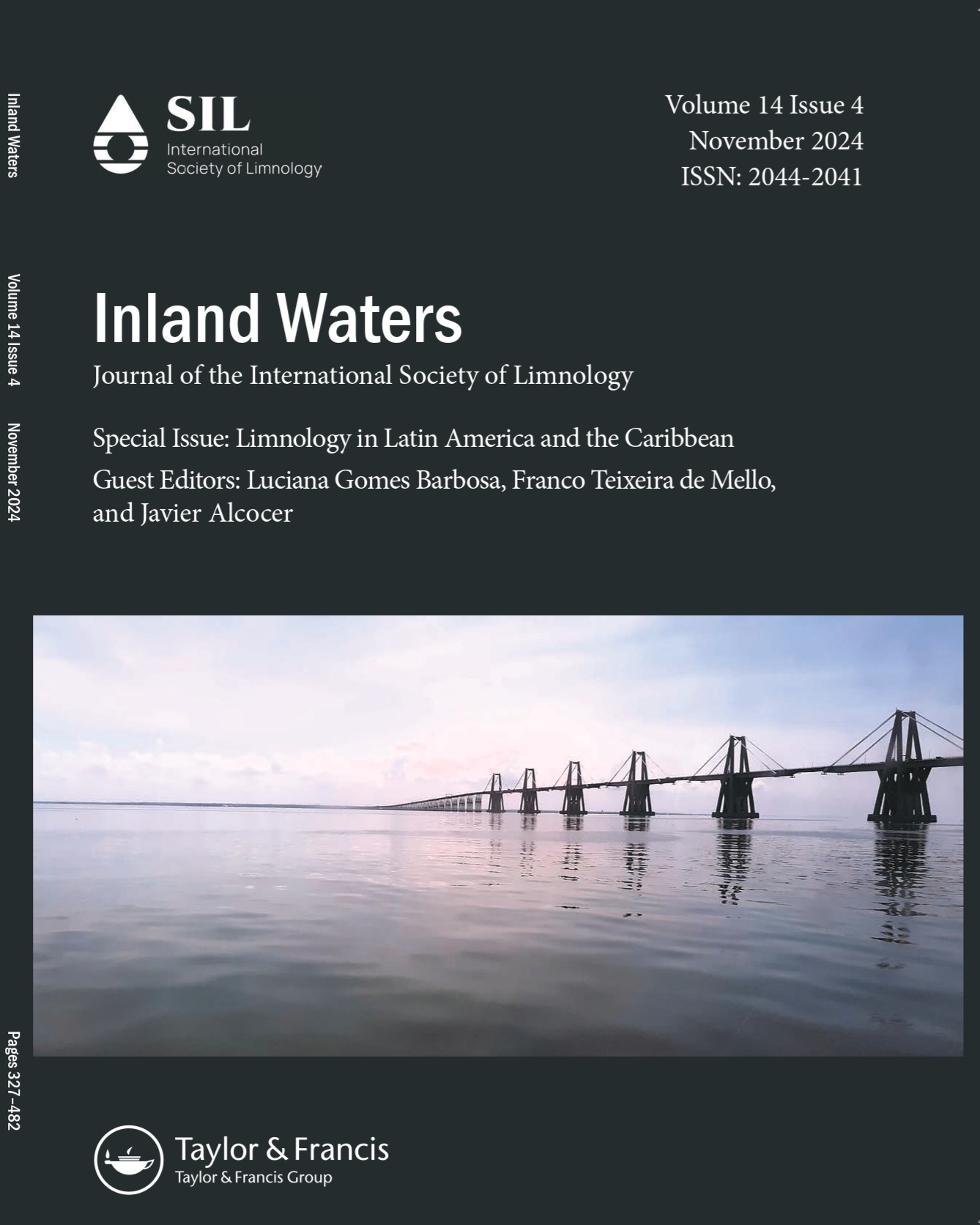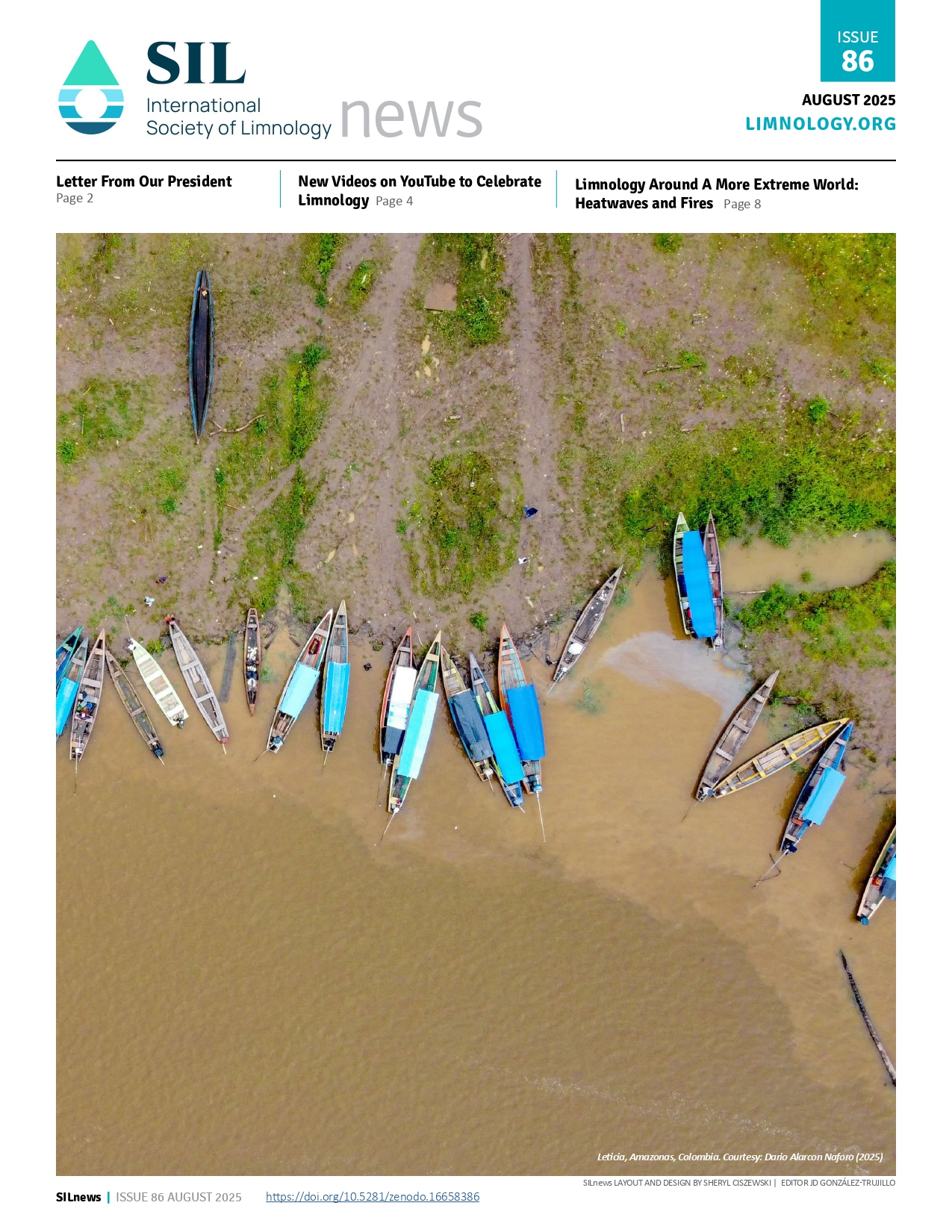I. Name
§1. The official name of the organization shall be the International Society of Limnology – Societas Internationalis Limnologiae and shall be abbreviated as SIL.
II. Mission and Strategic Focus
§ 2. The mission of SIL is to promote excellence in the study and management of inland waters and address global issues by promoting interdisciplinary approaches and fostering settings conducive to transfer of knowledge.
SIL delivers on its mission through the following strategic priorities:
• Foster and support international scientific networks of inland water research
• Develop and maintain partnerships for sustainable management of inland water ecosystems and water resources
• Contribute to addressing global environmental and societal issues around inland water ecosystems through a strategic alignment with the UN SDGs
• Empower diverse researchers of tomorrow and facilitate knowledge-transfer to promote limnology to a wider audience
III. Activities
§ 3. This aim shall be achieved by:
a. Congresses consisting of lectures, discussions, exhibits, excursions, and other scientific activities.
b. Publication of a journal based in part on Congresses and other material as appropriate.
c. Encouragement and sponsorship of symposia, meetings, and working groups.
d. Provision of financial assistance as practicable for limnological activities.
e. Affiliation with organizations embracing similar aims and interests.
IV. Membership and dues
§ 4. Membership dues are based on the most recently published National Gross Income per capita (GDP) as defined by the World Bank with the following five per capita GDP brackets:
1. >$50K pays full dues
2. $50K-$25K receives a 17% dues reduction
3. <$25K-$12.5K receives a 58% dues reduction
4. <$12.5K-$5K receives a 79% dues reduction
5. <$5K receives a 92% dues reduction
§5. Dues. Annual dues are payable by January 1, and shall be fixed at each General Assembly for the period until the next General Assembly. A detailed breakdown of all annual dues based on membership category, GDP, and 1- vs. 2-year membership option is published on the SIL website.
§6. There shall be seven categories of membership – Regular, Honorary, Life, Emeritus, Early Career, and Student – all of which shall have full privileges in SIL including the right of one vote at any General Assembly attended by a member in any of these categories.
a. Regular Members are individuals interested in limnology who pay full dues.
b. Honorary Members are individuals elected by the Executive Committee in recognition of their outstanding contributions to limnology or its applications. Honorary members pay no dues.
c. Life Members are individuals who make a major financial contribution to SIL. The minimum contribution for this category of membership shall be 40 times the annual dues of regular members. Life members do not pay annual dues.
d. Emeritus Members are SIL members who, after retirement, request emeritus status and whose requests are approved by the Executive Board. Emeritus members may pay no dues and enjoy all the rights of ordinary SIL members except free online access to publications, or pay 50% dues and enjoy all the rights of ordinary SIL members including free on-line access to publications.
e. Early Career Members are professionals within the first 6 years after completion of their highest degree. Early Career status is limited to a maximum of 6 years. Early Career members pay 50% dues of Regular Member dues in their respective GDP bracket.
f. Student Members are full-time students working toward a graduate or post-secondary degree in limnology or related field. Student status is limited to a maximum of 12 years or until degree completion. The annual dues for students will be as advertised on the SIL website.
§7. Application for Regular, Early Career, or Student membership can be made on the SIL website or by contacting the SIL business office.
§8. Members in good standing for any given year will have free on-line access to all SIL publications.
V. Fiscal year
§ 9. The fiscal year of SIL shall end on 30 June.
VI. Governance
§ 10. Governance shall be by an Executive Board and the General Assembly in accordance with statutes and by-laws.
§ 11. Executive Board.
a. The President, four Vice Presidents, four Student/Early Career representatives, and the General Secretary-Treasurer shall constitute the Executive Board. Each Vice-President and Student/ECR representative will be elected for a specific position that corresponds to one of these portfolios: Education, Communication & Publication, Developing Economies, and Global Outreach.
b. A Nominating Committee of five members chosen by the Executive Board shall nominate candidates for election to the Executive Board, to be elected by ballot prior to each Congress or in the period between congresses if a position of the Executive Board needs to be filled. The President, Vice Presidents, and Student/Early Career members of the board shall serve terms of 3 years and may be reappointed for a second term, totalling 6 years. The General Secretary-Treasurer shall serve terms of 4 years with no set term renewal limit.
c. The Executive Board shall be convened by the General Secretary to meet in person, by email, or by conference call and presided over by the President. Two-thirds of the elected board members shall constitute a quorum. A simple majority of those present shall carry a proposal. If votes are equal a proposal shall be defeated. The Executive Board shall be responsible for presenting to the General Assembly a general report, a statement on income and expenditure, a forecast of the financial situation in the coming biennium or triennium, resolutions passed by the International Committee, and other business.
d. The General Secretary-Treasurer shall be responsible for all business matters, and shall be ex officio a member of all committees.
e. The Editor in Chief shall be responsible for editing the publications issued by SIL, and shall report to and be appointed by the Executive Board.
f. Members of the Executive Board shall act in an honorary capacity. The President (or in case of absence, a Vice-President), the General Secretary-Treasurer, and the Editor in Chief shall attend each Congress at the expense of SIL. The General Secretary-Treasurer and Editor in Chief shall receive an annual honorarium, the amount of which shall be fixed by the General Assembly.
g. No document binding SIL shall be valid unless signed by the President and General Secretary-Treasurer.
§ 12. Committees
a. The Executive Board maintains authority to establish or terminate committees and advisory bodies. Such committees/bodies may formulate their own operational and membership procedures in line with the statutes.
b. Committee Chairs will be nominated by the Executive Board, and any committee member may be removed by resolution of the Executive Board.
c. SIL standing committees comprise the following:
- Nominating Committee: Composed of a minimum of five (5) SIL members in good standing, this committee will search for and nominate candidates for election to the Executive Board.
- Baldi, Kilham, and Naumann-Thienemann Awards Committee: de facto chaired by the SIL President.
- Student Awards committee (Tonolli and Wetzel Awards), chaired by the VP of developing economies
§ 13. SIL Ambassadorsa. SIL members in a country or region are encouraged to designate a minimum of one representative to act as a SIL Ambassador.
b. Together, these SIL Ambassadors form the Global Outreach Network, to be led by the Vice President Global Outreach or an Ambassador that is nominated by the Executive Board.
c. The SIL Executive Board is the entity responsible for developing and updating periodically the mandate for the Global Outreach Committee, in alignment with current priorities and engagement strategies.
§ 14. General Assembly.
a. The Regular Members, Honorary Members, Life Members, Emeritus Members, Early Career Members and Student Members attending a congress shall constitute a General Assembly.
b. There shall be at least one General Assembly at each Congress.
c. The General Assembly shall decide on matters presented to it and on items of business raised by any member.
d. A simple majority of those voting shall carry a proposal. If votes are equal, the President has the deciding vote.
e. A proposal for termination of SIL shall require approval of three-quarters of the members of the General Assembly.
f. Should SIL be terminated, the Executive Board shall decide how to dispose of any assets, but dissolution must be done in accordance with the aims of SIL.
g. Two auditors appointed by the Executive Board shall audit the accounts each year and
submit a written report to the next General Assembly.
VII. Congresses
§ 15. The time and place of the next Congress shall be decided by a formal process comprising of the following steps:
a. A Request for Proposal (RFP) shall be drafted and circulated by the Executive Board to SIL members in substantial advance of a Congress;
b. SIL members may submit a proposal as per the terms of the RFP;
c. The Executive Board will appoint a Congress selection committee to review, shortlist and negotiate proposal revisions with selected candidate(s);
d. Shortlisted proposals will be presented to the Board and passed by resolution;
e. The successful proposal host will be announced to the General Assembly preceding the Congress.
§16. The General Secretary-Treasurer shall announce the Congress at least one year in advance and, working closely with the local organizing committee, shall communicate in writing to all members the major topics and organizational details of the Congress.
§17. A Congress shall be held every two or three years whenever feasible.
§18. Each member attending a Congress shall be entitled to present one paper.
§19. Invited Congress keynote speakers are expected to submit their presentations as papers for publication in Inland Waters. All other Congress participants are encouraged to do the same.
VIII. Languages
§20. Oral communication of scientific papers shall be in English, if possible.
§21. Written communications in the publications sponsored by SIL shall be in English.
IX. Amendments
§22. Any proposed alteration to these statutes shall be initiated by the Executive Board. Proposed amendments shall be distributed to the membership in writing (by email or on paper) four weeks or more prior to a General Assembly held at a Congress or to a scheduled electronic vote.
§23. The notice of voting must contain the date for voting and include the text of the proposed amendment as well as the corresponding current Statutes. A majority of two-thirds of those voting is required to alter the statutes.
§24. Voting on Statutes amendment will take place at the General Assembly of the Congress or electronically if required in between Congresses. Members will vote for approval or rejection. Each voting member may cast one vote either for “Approval” of the draft for new Statutes, or “Rejection” of the draft.
Last Update: Dec 3rd, 2024


